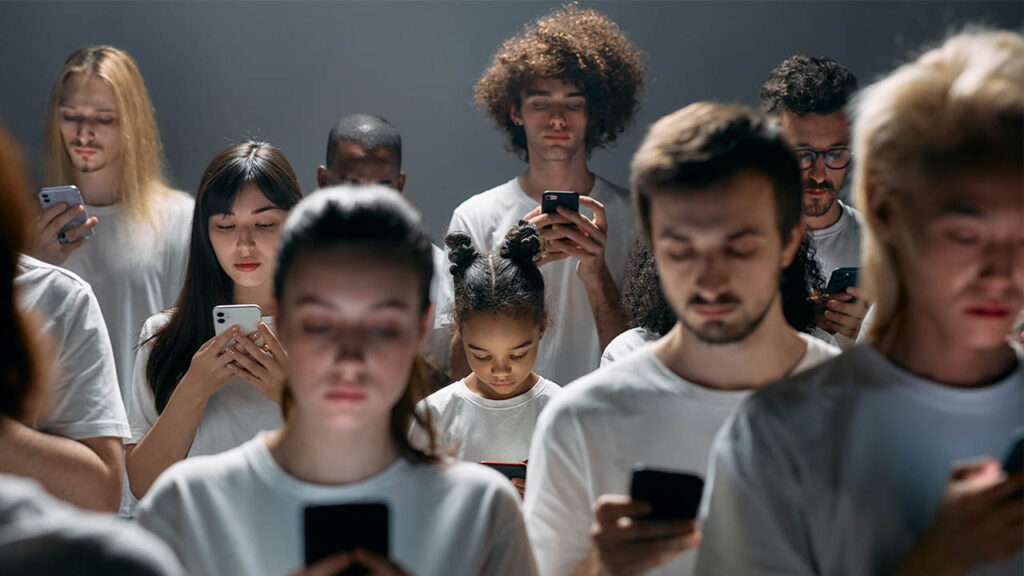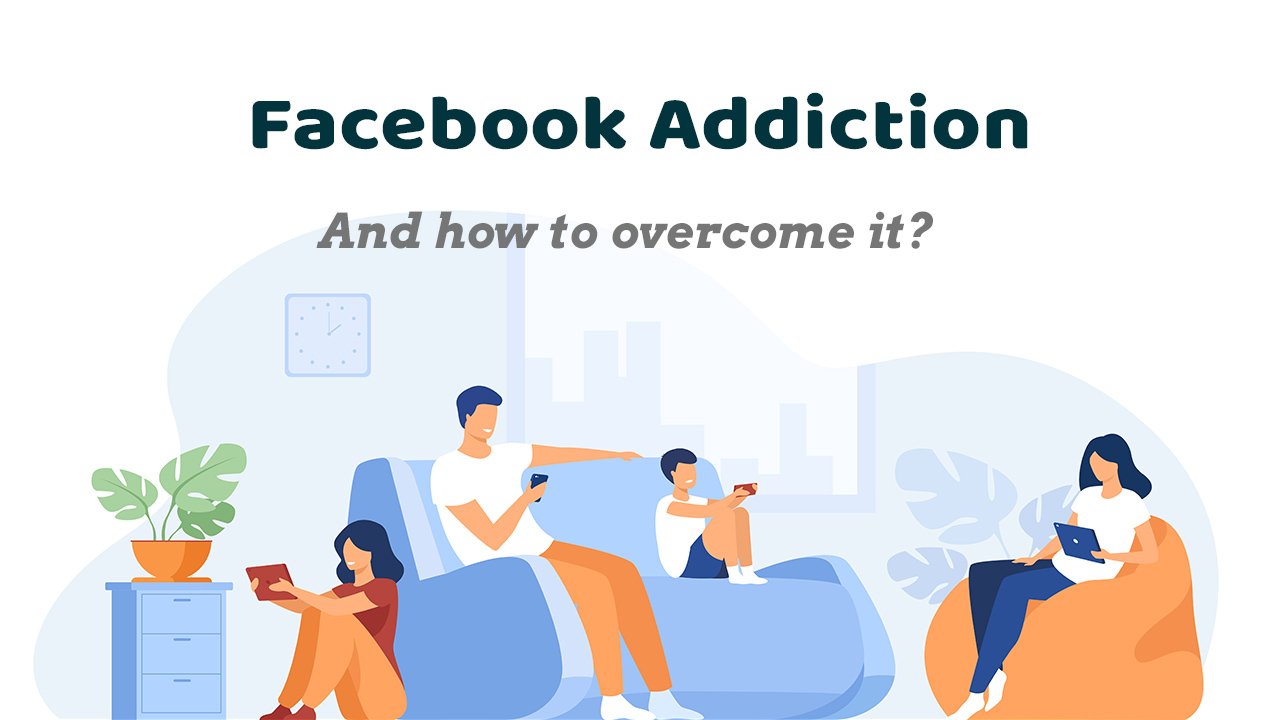Did you know that an average teen can spend up to 9 hours every day on Facebook? This may sound alarming to most of us, but this is the stock reality of these times. The average time spent by adults on social media is around 2 hours. However, some of us may not realize that we are spending a lot more time than that. The addiction of Facebook is more common than we may assume. Have we as humans become addicted to Facebook? Or this is just an adjustment phase after which things will be under control again?
What is addiction of Facebook? How is it related to other addictions?
Social media addiction has been classified as an impulse control disorder by the Diagnostic and Statistical Manual of Psychological Disorders (DSM-5). The typical cycle of an impulse control disorder is as follows:
- The person experiences a strong urge or drive (impulse) to engage in the behavior.
- Abstaining from fulfilling the urge leads to extreme levels of anxiety in the person.
- The person engages in the behavior to get rid of the anxiety.
- However, the relief from anxiety is short-lived and soon the impulse or the urge returns.
Slowly and steadily, the person becomes dependent on social media or any digital App for the release of tension. In other words, digital life serves as a temporary escape from the upheavals of the real world. DSM-5 also considers gaming disorder to be a major part of internet addiction. We are all familiar with the tragedies created by popular digital games. Similarly, people are realizing the potential dangers of addiction of Facebook and other social media platforms.
Analogy between Substance Abuse and Internet Addiction
Addiction is a type of impulsive behavior where an individual consumes a substance and slowly becomes dependent on it. Traditionally, addiction is caused by narcotic or recreational substances. However, addiction can also happen when a person indulges in other behaviors, such as social media, gambling, or gaming.
Just like alcoholic experiences a strong urge to consume alcohol, a social media addict experiences a strong urge to post, comment, like, and share posts. The alcoholic is unable to control himself whenever he or she views a bottle of alcohol. Similarly, the social media addict is unable to control oneself by seeing the notification light of the phone blinking. Just like the alcoholic, who knows that drinking is a vice, the social media addict also knows the cons of constantly using and consuming content on social media. Yet both have little power to control their action. Therefore, we become addicted to Facebook. Consequently, this addiction to Facebook starts affecting our health and wellbeing.
How to know if you have Social Media Addiction?
You can check for the following symptoms in yourself and find out if you have it:
- Compulsive, excessive, and repeated engagement in social media.
- Being unable to stop the activity.
- Impaired judgment.
- Being unable to control the behavior.
- Craving the activity or behavior.
- Being unable to recognize the consequences of the behavior (safety, financial, emotional, physical, death).
- Strained work and personal relationships.
- Inappropriate emotional response.
If you have the above symptoms and the cause of this maladaptation is social media, you know that you have social media addiction. If you think you have any of these symptoms then it indicates that you may have an addiction to Facebook. For a more accurate diagnosis, please visit a psychologist.
Why do people suffer from social media addiction?

Social media addiction may start off as a simple process. People just join the platform to increase their interaction with other people. However, over a period of time, they get more and more pleasures out of the platform. This pleasure comes from a cycle of positive feedback and self-verification. When you see people are liking your post, you feel good. It is obvious that anyone would want to indulge more in those activities that make one feel good. In addition, social media Apps often suggest such videos to you that you have liked in the past. Hence, they know your likings and preferences. Therefore, you start spending more and more time on social media.
1. Psychological reasons
Some researchers view social media addiction as a self-regulatory failure. We all know our daily responsibilities. However, when we postpone our work in order to satisfy our urge to check social media or be available online for our friends and relatives, we are unable to regulate our actions to fulfill our top priorities.
In addition, many of us suffer from FOMO (Fear of Missing Out). We often feel that if we do not check our social media Apps, we will miss some crucial information or news. Often, we feel embarrassed if we do not reply to messages and take pride in claiming that we reply to messages ASAP. We wrongly feel that if we do not check the notifications immediately, something terrible will happen.
Certain biochemical factors may also force us to suffer from social media addiction. In general, social media addiction has been linked to the activity of the neurotransmitter dopamine. Dopamine controls the mechanisms related to rewards and learning in the brain. When we feel rewarded a large amount of dopamine is released in the brain. Now dopamine gives us a feel-good feeling. Hence, we would normally want to engage in activities that trigger the release of dopamine in the brain. Social media is one such activity that releases dopamine. In addition, when we see that others are liking and commenting on our posts, we feel rewarded. Therefore, it triggers the release of dopamine in the otherwise anxious person. Hence, the cycle of addiction becomes strong.
2. Social Media are designed to be addictive
However, it is not just the individual who is to be blamed. The algorithm of social media Apps also plays a critical role in this addiction. These sites and apps are designed after careful research into how our minds work. The apps may you stay longer, interact more and share more. The effect may be more pronounced for those individuals who are already more vulnerable. However, at some level, we cannot escape the clutches of social media. To make the matters worse, companies like Facebook already know the adverse effects but encourage it. In a recent revelation by an ex-facebook employee, it was discovered that Facebook knew that Instagram is very bad for teens but they do nothing.
Nir Eyal has suggested that we are hooked on social media. This means that by design, these platforms trap us. He has suggested that the users get hooked to these platforms because it is designed in such a manner. Social media enhances the concept of gamification. We count the number of likes and comments on our post as if the number of likes and comments will make us win a game. They ensure that we get small pleasures from each interaction. It also makes us invested in the followers, likes, and comments. Therefore, it becomes very difficult to leave these platforms. Johari Window Model suggests that our personalities are viewed very differently by us and others. We are in constant turmoil between who we think we are who we want to be seen as.
How to overcome social media addiction?
The good news is that you can overcome social media addiction by becoming a bit cautious and exercising a bit of self-control in your life. Here are a few ways which will definitely help you:
- Actively think about the negative consequences of your behavior. Doing so will enable you to develop insight into your addiction and identify it as maladaptive.
- “What gets measured gets controlled” is a famous proverb and wise people follow this. Download the digital well-being App on your phone and track your social media usage.
- Disable the notification setting on your phone. This may help you overcome the addiction of Facebook.
- Engage yourself in exercise and leisure activities so that you have little time for social media.
- Experience the bliss of digital detox or the Joy of Missing Out (JOMO) once in a while. In other words, do not open any social media Apps for a day or two.
- Practice mindfulness. It is the most effective method of making one conscious of our activities and monitor our behavior.
- If none of these work for you, visit a therapist to receive professional assistance.
